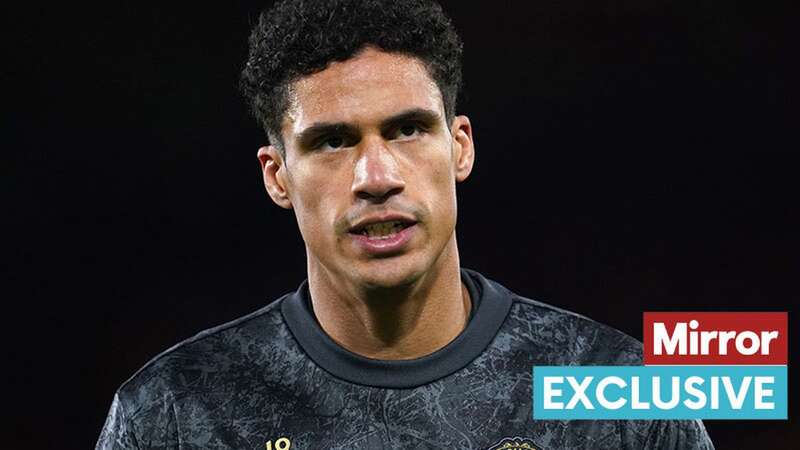
Footballers should be given annual scans and ‘concussion passports’ to protect them from brain injuries, lawyers have warned.
Professional footballers are three-and-a-half times more likely to develop dementia and other neurodegenerative diseases. Experts believe that is caused by repeated head impacts throughout their careers.
More than 350 footballers have been diagnosed with dementia and a group of 30 former professionals – including three former Premier League stars – are now taking legal action against the sport’s governing bodies for failing to take reasonable steps to protect players.
Solicitor Richard Boardman from legal firm Rylands Garth, who is leading the litigation, said: “We believe thousands of current and retired players are struggling with symptoms suggestive of neurological impairments like dementia, CTE, motor neurone disease, and Parkinson’s disease."
The governing bodies of all contact sports need to take urgent, substantive action to protect players from the risks associated with concussive and sub-concussive injuries.
 Premier League odds and betting tips
Premier League odds and betting tips
Other sports, such as rugby, have already introduced annual health checks and concussion passports to assess players’ recovery from head injuries. Lawyers also want football to introduce ‘concussion spotters’ to identify head injuries, like those used in NHL ice hockey, and independent specialists instead of club doctors to decide when players are fit to play again after a concussion.
They are also calling for a public inquest into how chief medical advisors of major sports used distorted data to deny the link between head impacts and CTE. And a new, independent concussion ombudsman to prevent sporting bodies from “marking their own homework” in future.
Lawyers also want dementia in sport to be classed as an industrial disease to ensure affected players receive the support they need.
Most footballers who have been publicly diagnosed with dementia played during the 1970s or earlier. That includes five of England’s 1966 World Cup winning team – Bobby and Jack Charlton, Nobby Stiles, Martin Peters, and Ray Wilson – as well as fellow England internationals Sir Stanley Matthews, Stan Bowles, Jeff Astle, and Dave Watson.
However, experts fear current players are at even greater risk because modern footballs travel at higher velocity, causing more damage. Former England and Ipswich striker Marcus Stewart has Motor Neurone Disease, another neurodegenerative disease that footballers are more likely to develop.
And this week French World Cup winner and Manchester United defender Raphael Varane, 30, revealed that concussions have damaged his body and admitted that he tells his seven-year-old son not to head the ball.
Mr Boardman said: “With Raphael Varane becoming the latest sportsman to discuss his struggles with concussion this week, we expect many more players to come forward. The players we represent all love the game that they played. Our objective is to challenge the current perceptions held by sports’ governing bodies and to urge them to publicly acknowledge the well-recognised connection between repetitive blows to the head and permanent neurological injury. The human brain cannot handle playing a collision sport for 11 months each year.”
Former England international Gordan Cowans became the first Premier League footballer to publicly reveal he had early-onset dementia in March 2020. Last week his family revealed the 65-year-old – who won the European Cup with Aston Villa – had moved into a care home.
In a statement, they said: “Gordon is suffering from a deteriorating illness, and it is progressing. He has entered a care facility because his welfare is paramount. There is a long-term health plan in place, formulated with specialists. It is reviewed regularly to ensure Gordon’s needs are best served and provided for.”
Cowans’ former Aston Villa teammate Chris Nicholl died in February this year, aged 77, after living with dementia for more than a decade. Nicholl was England striker and Match of the Day pundit Alan Shearer’s first manager at Southampton and taught him to head the ball. He spoke about his life with the disease to Alan in a BBC documentary in 2017.
 World Cup hero wants Man Utd move as doubts over Harry Maguire's future grow
World Cup hero wants Man Utd move as doubts over Harry Maguire's future grow
“I’m brain damaged from heading balls,” he said. “My memory is in trouble – I forget things. All people forget where your keys are, but when you forget where you live, that’s a bit of a message. It bothers me, I know I’m getting worse.”
In the documentary, Alan was visibly moved by his mentor’s attempt to play down his concerns about the disease and his reluctance to see a doctor. “His reaction is so typical of footballers,” said Alan. “He doesn’t want help, he doesn’t want to admit that help would be a huge advantage to him, which is very worrying.”
An FA spokesperson said: “We continue to take a leading role in reviewing and improving the safety of our game. This includes investing in and supporting multiple projects in order to gain a greater understanding of this area through objective, robust and thorough research.
“We have already taken many proactive steps to review and address potential risk factors which may be associated with football whilst ongoing research continues in this area including liaising with the international governing bodies.”
Read more similar news:
Comments:
comments powered by Disqus

































